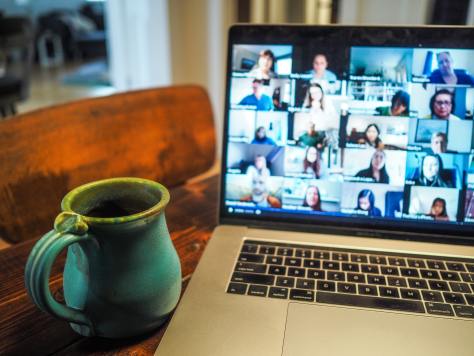This week saw record temperatures as a red warning heatwave hit the UK. I spent the week working from home, as trains were cancelled or delayed and there were problems on the roads.
I wrote a blog post on how I can teach anywhere
I use to say things like “I can teach anywhere”. What I meant by this, wasn’t that the environment or space I was using wasn’t important, but I could overcome the disadvantages of the different spaces I had to play with, and still deliver an effective session.
So though I might be able to teach anywhere the reality is that all those challenges and issues I face in an inappropriate space, may well result in poor quality learning, despite the quality of my teaching.
Big news this week was that the QAA was to step away from designated role in England. Over on Wonkhe, David Kernohan tries to make sense of it all.
The Quality Assurance Agency (QAA) will no longer consent to be the Designated Quality Body (DQB) in England, as of the end of the current year in office (March 2023). The reasoning is straightforward – the work that QAA does in England, on behalf of the OfS, is no longer compliant with recognised quality standards – namely the European Standards and Guidelines (ESG) as monitored by the European Quality Assurance Register for Higher Education (EQAR). For this reason, the QAA registration with EQAR was recently suspended – a decision that highlights international concerns about procedures in England but has an impact in the many other nations (including Scotland and Wales) where QAA needs that EQAR registration in order to fulfil a statutory quality assurance role.
Once more we are seeing more divergence across the UK for higher education.

I revisited and revised a blog post on voice assistants I had written back in 2018.
Voice assistants have become widespread and are proving useful for a range of uses. The cost has fallen over the years and the services have expanded.
The use of voice assistants and smart hubs has certainly continued, and they have become embedded into many digital ecosystems. Their use in education though is still limited and I will be looking at that in a later blog post.
Attended a session on impact this week, which was interesting, but not necessarily that useful. How do you evidence impact of what you do? I wonder for example of the 1,828 blog posts published on this blog have had any impact on the way in which people work, support others or plan their work. For example one of the most popular blog posts on the blog, which though written in 2011, is still regularly viewed, is this one 100 ways to use a VLE – #89 Embedding a Comic Strip, which was one of a series of blog posts on improving or enhancing the use of the VLE.
One use of graphic that can enhance the look of a VLE course or as a mechanism to engage learners is to embed a comic strip into the VLE course.
What has been the impact of this? Has is changed practice? Has it improved the student experience? Has it improved student outcomes? How would I know?
I don’t think I can evidence the impact of this, but other work I have done I can sometimes see the evidence, however I don’t know if their has been actual impact.
I quite liked these tweets from August 2021 from people who had attended the digital leadership consultancy I had delivered for Leeds.
Me too! I’m crediting this partially to my participation in the Jisc Digital Leaders programme. @DigitalJisc
— Caroline Ackroyd (@AckroydC) August 19, 2021
I had as part of the programme delivered a session on e-mail. It incorporates much of what is in this blog post on Inbox Zero and this follow up post. Always nice to see the impact that your training has had on the way that people work, they didn’t just attend the training, engage with the training, but are now acting on what they saw and learnt.
However what I don’t know is, has the change had a positive impact? And what was that impact?
I spent some of the week reviewing our new guide to the Intelligent Campus, and the revamped guide to the Intelligent Library. The library guide was never published but has been updated for 2022. I also reviewed our updated use cases, as well as drafting plans for some additional use cases. I am aiming for publication of these in the autumn.

If you are going on leave over the summer, you may want to look at this blog post on managing your summer e-mail.
My top tweet this week was this one.
It’s raining.
— James Clay (@jamesclay) July 19, 2022










































